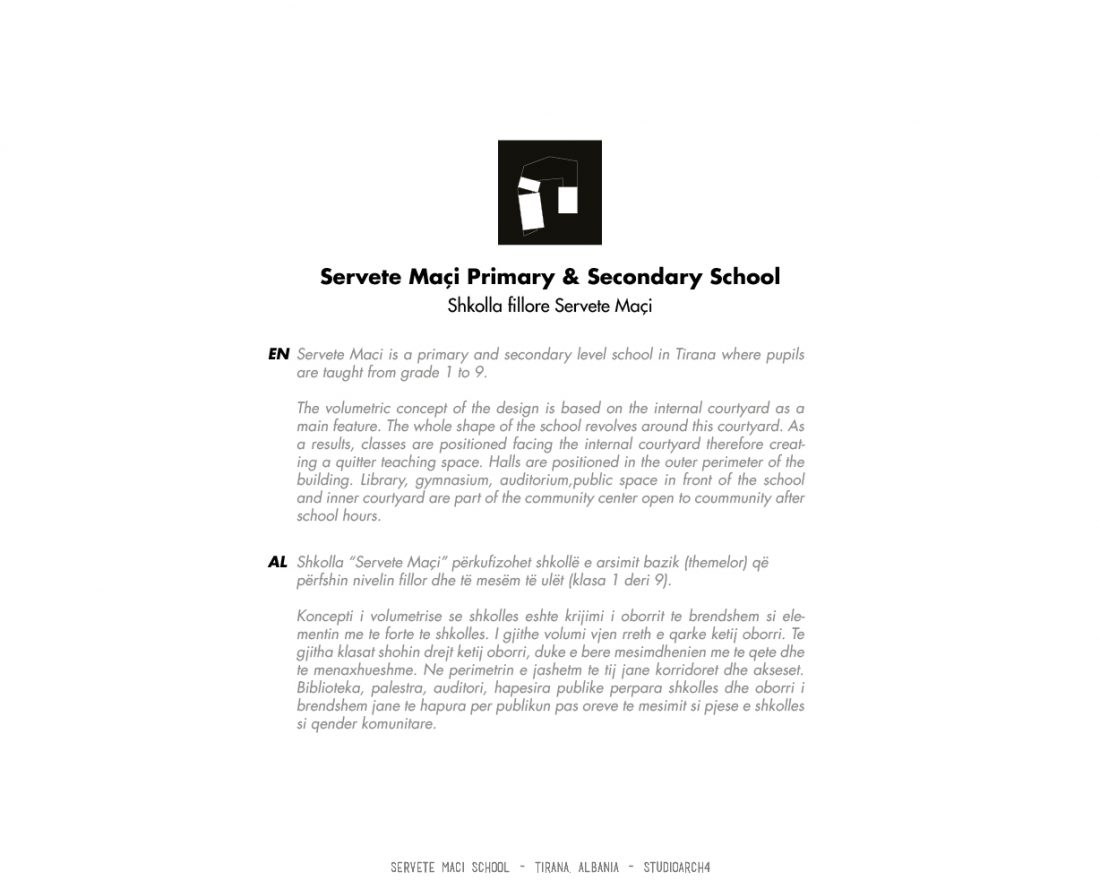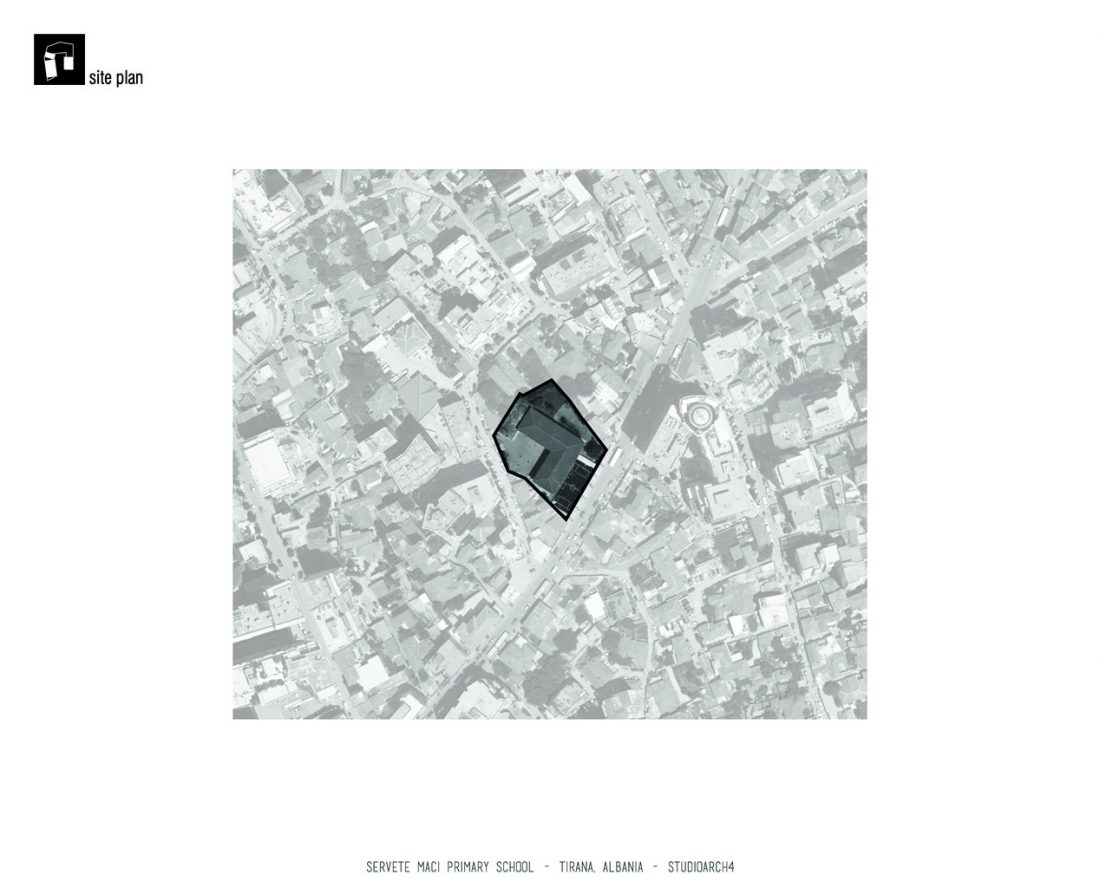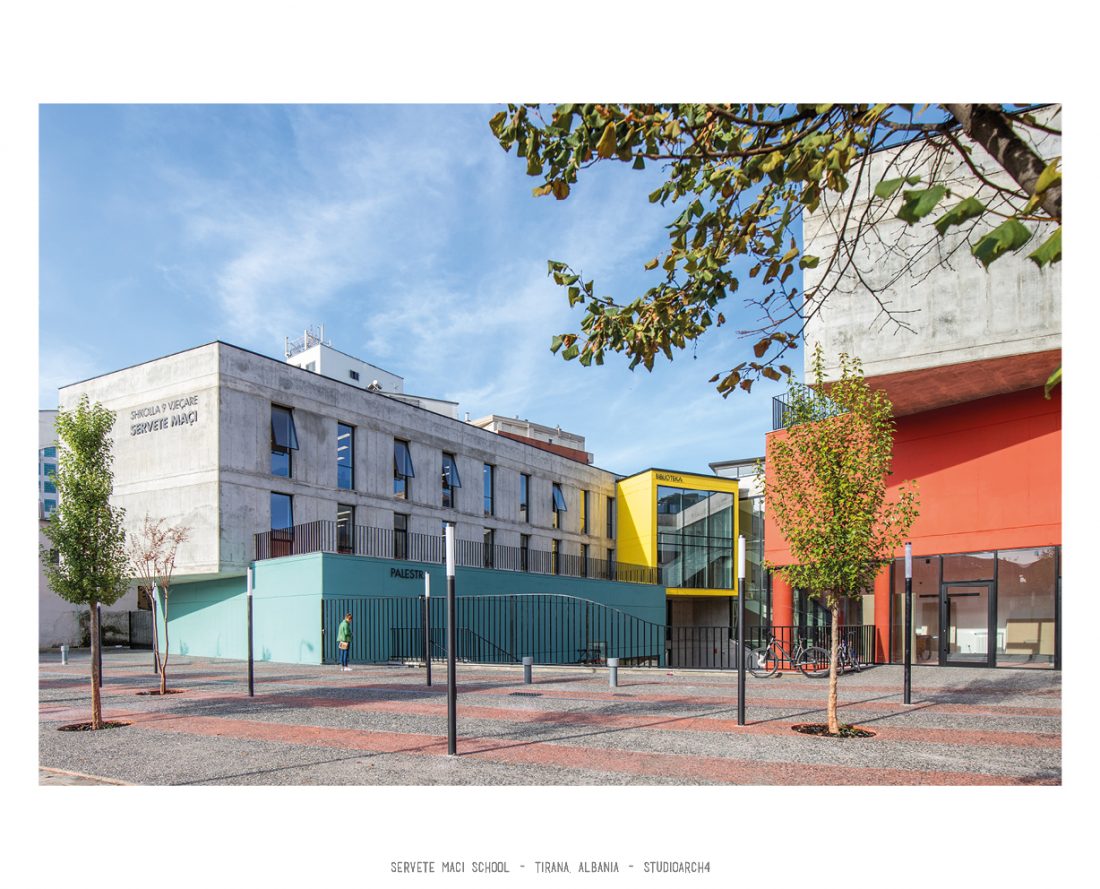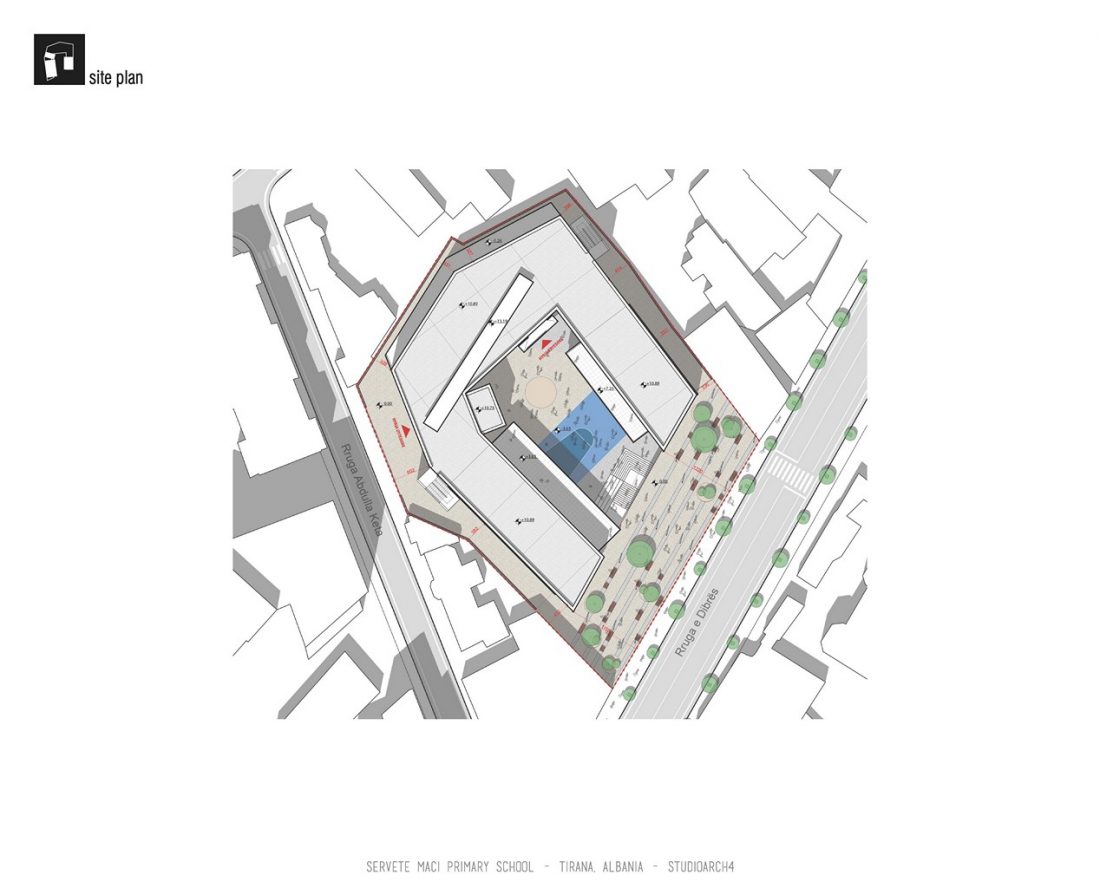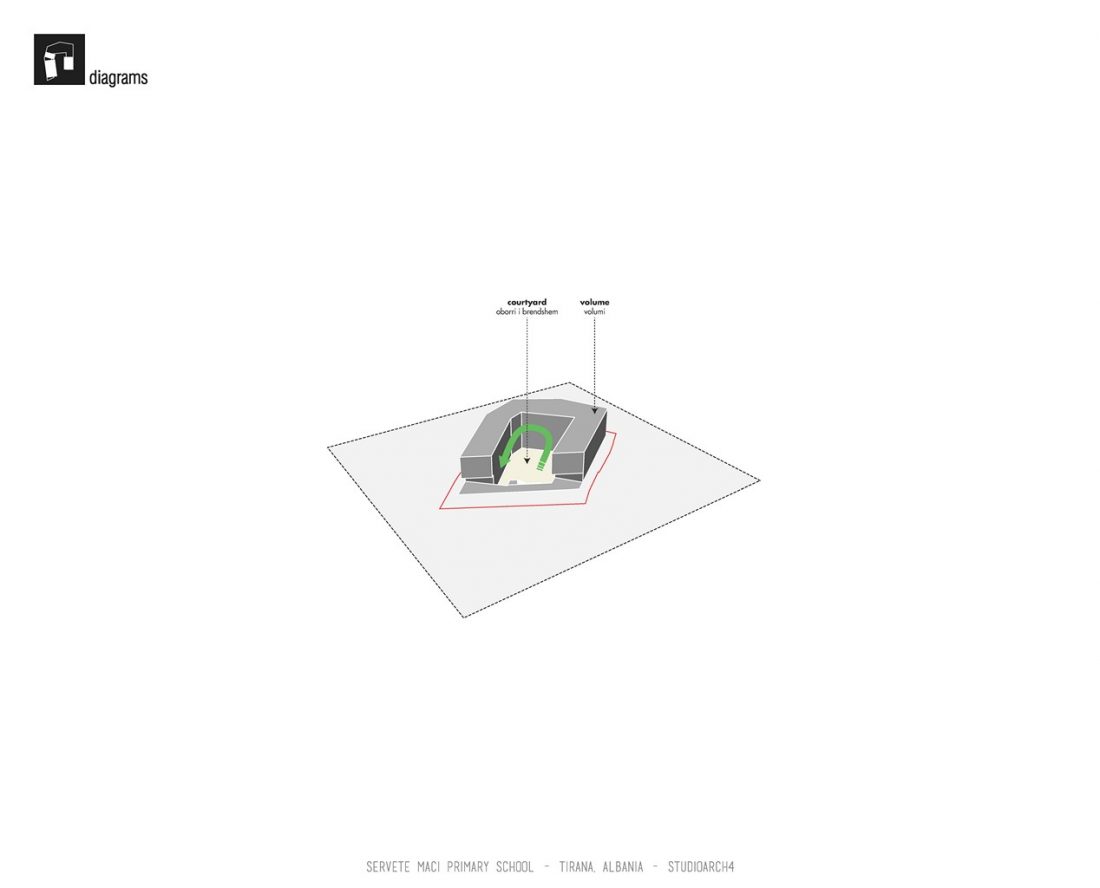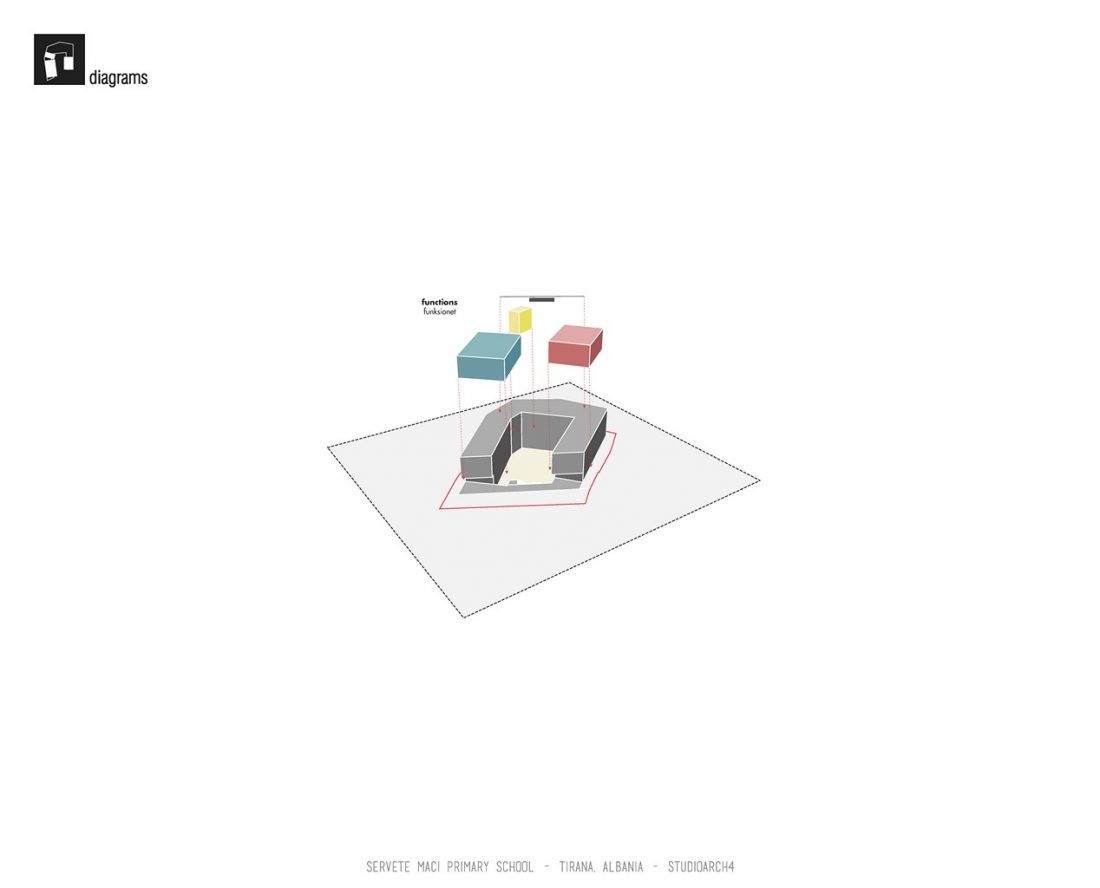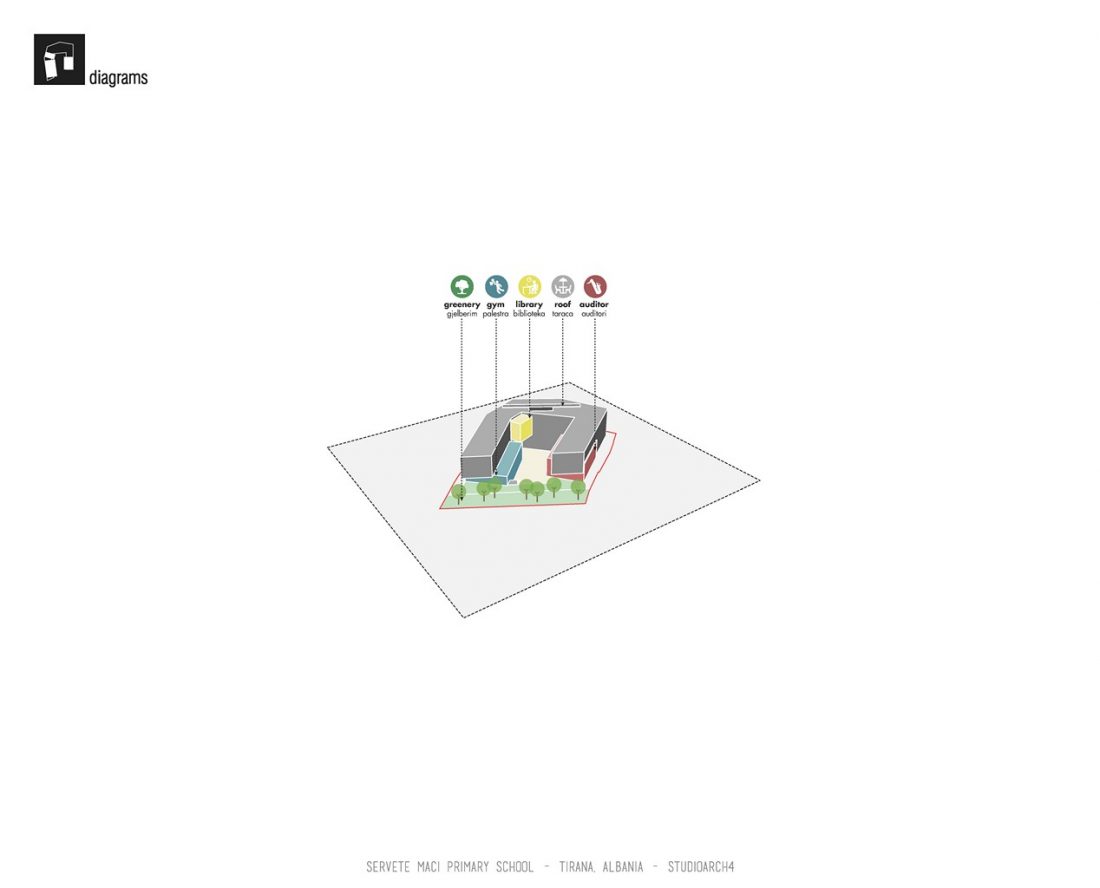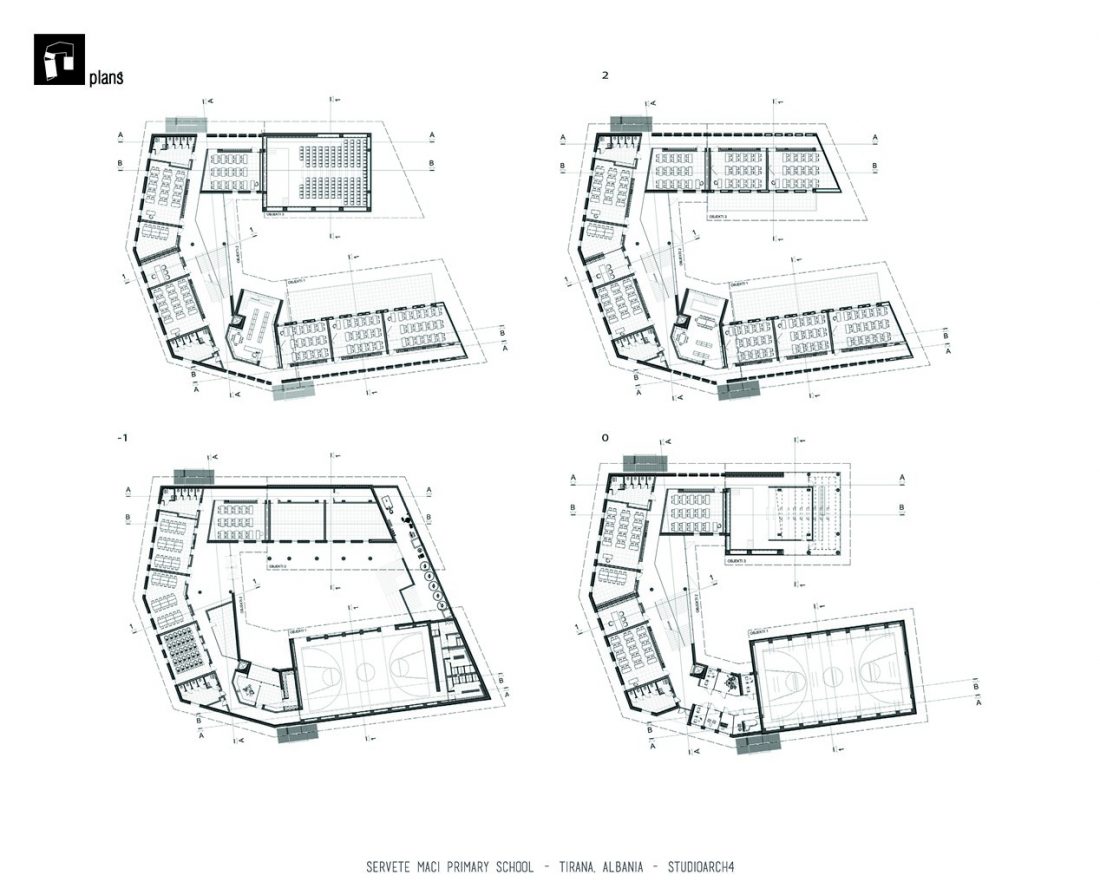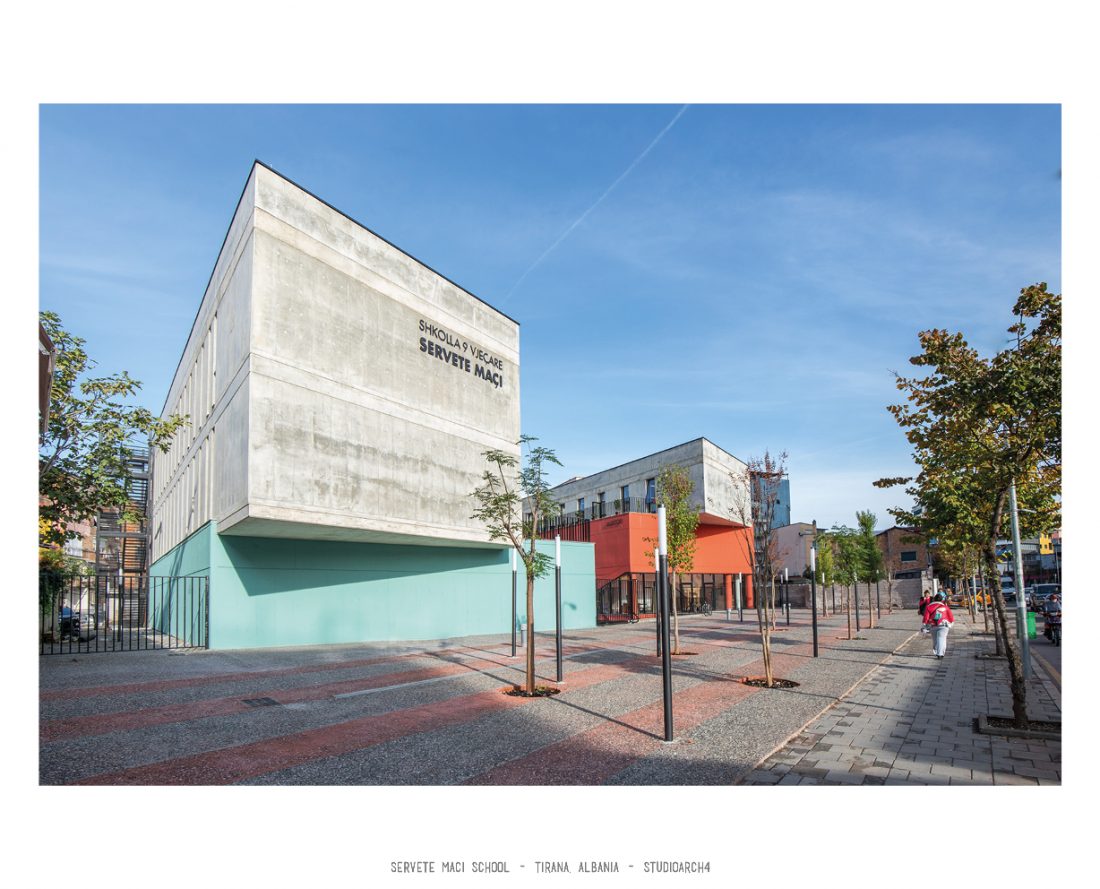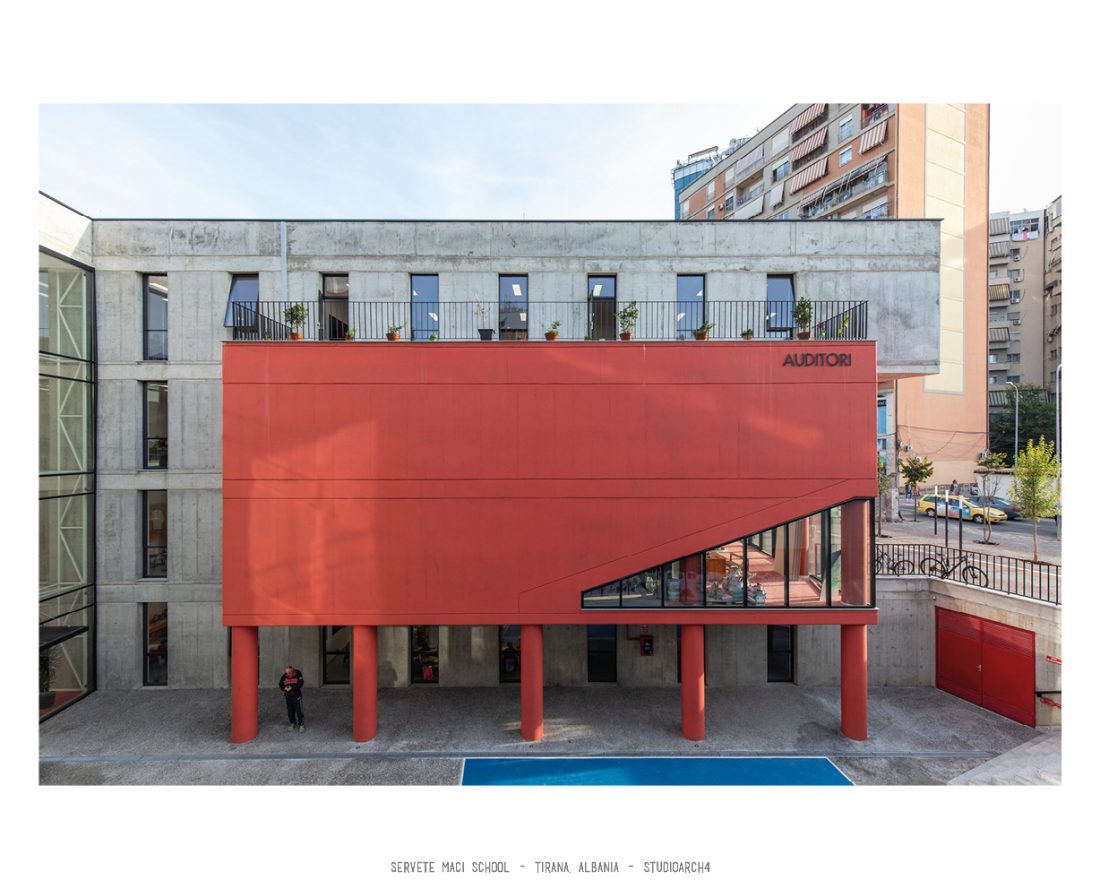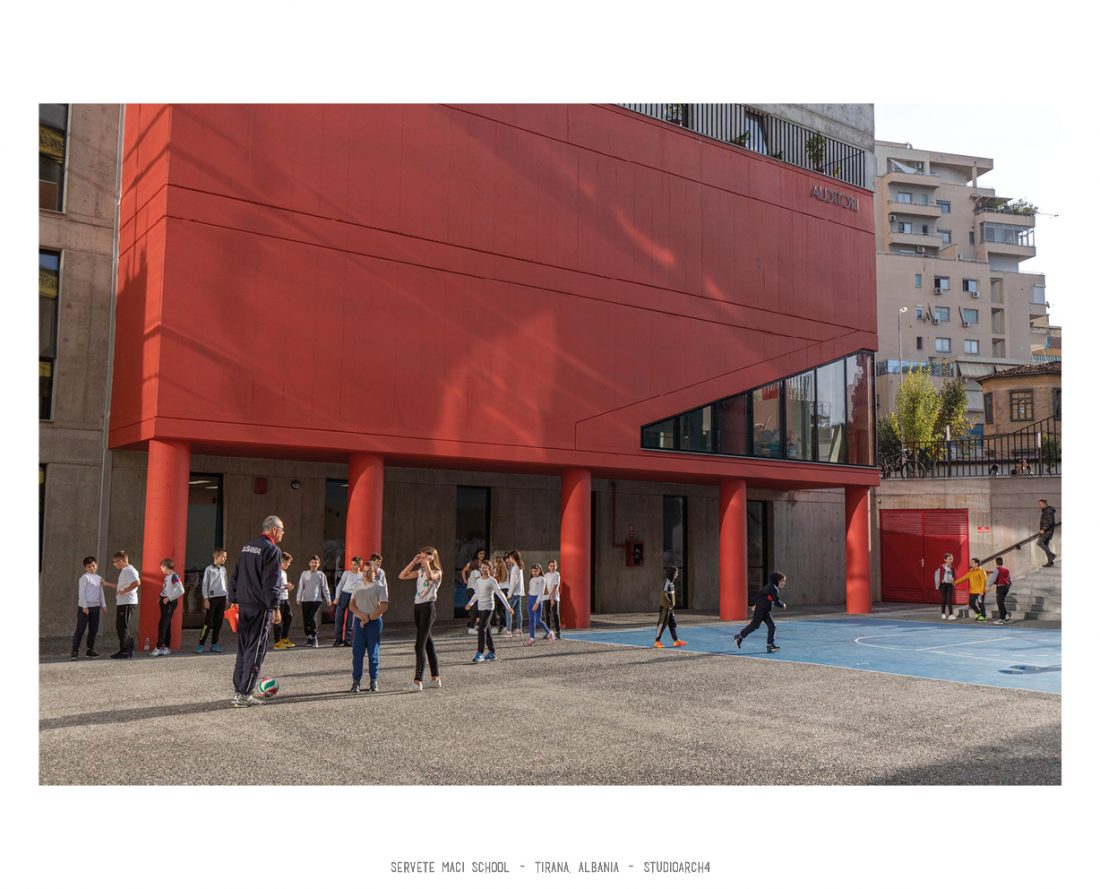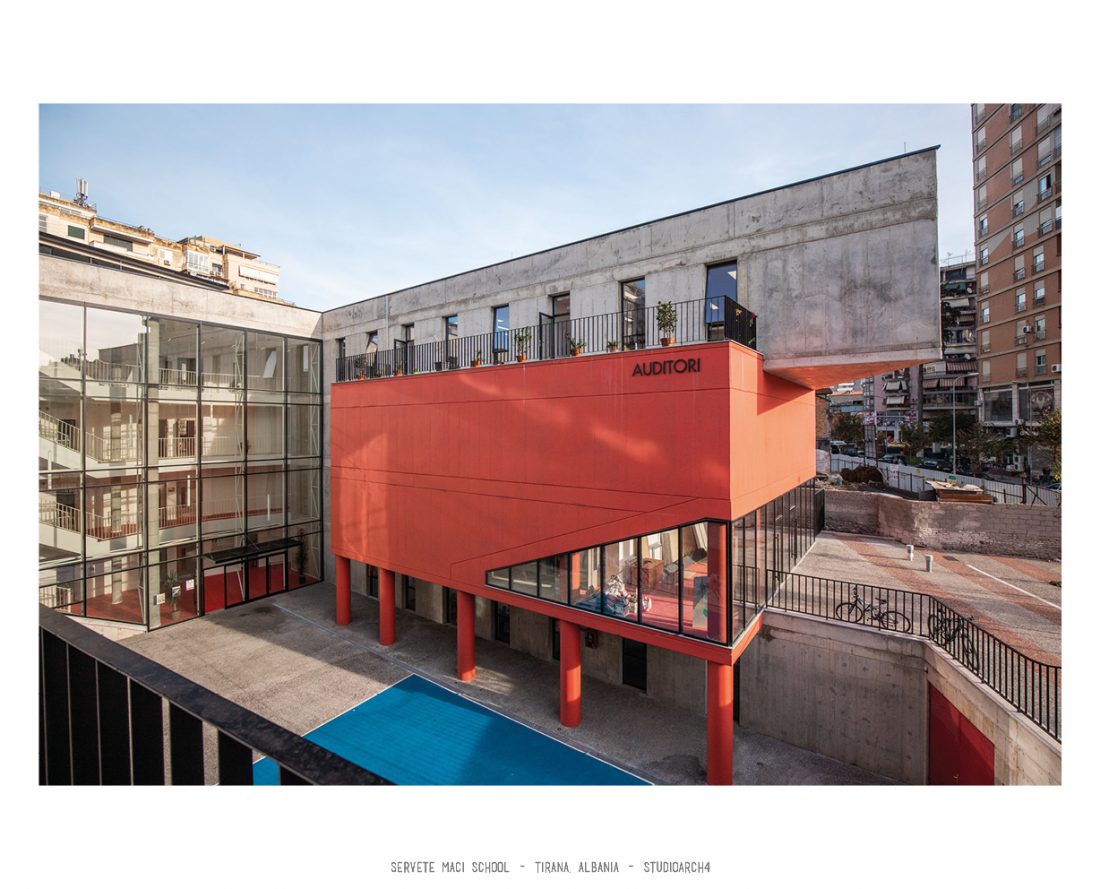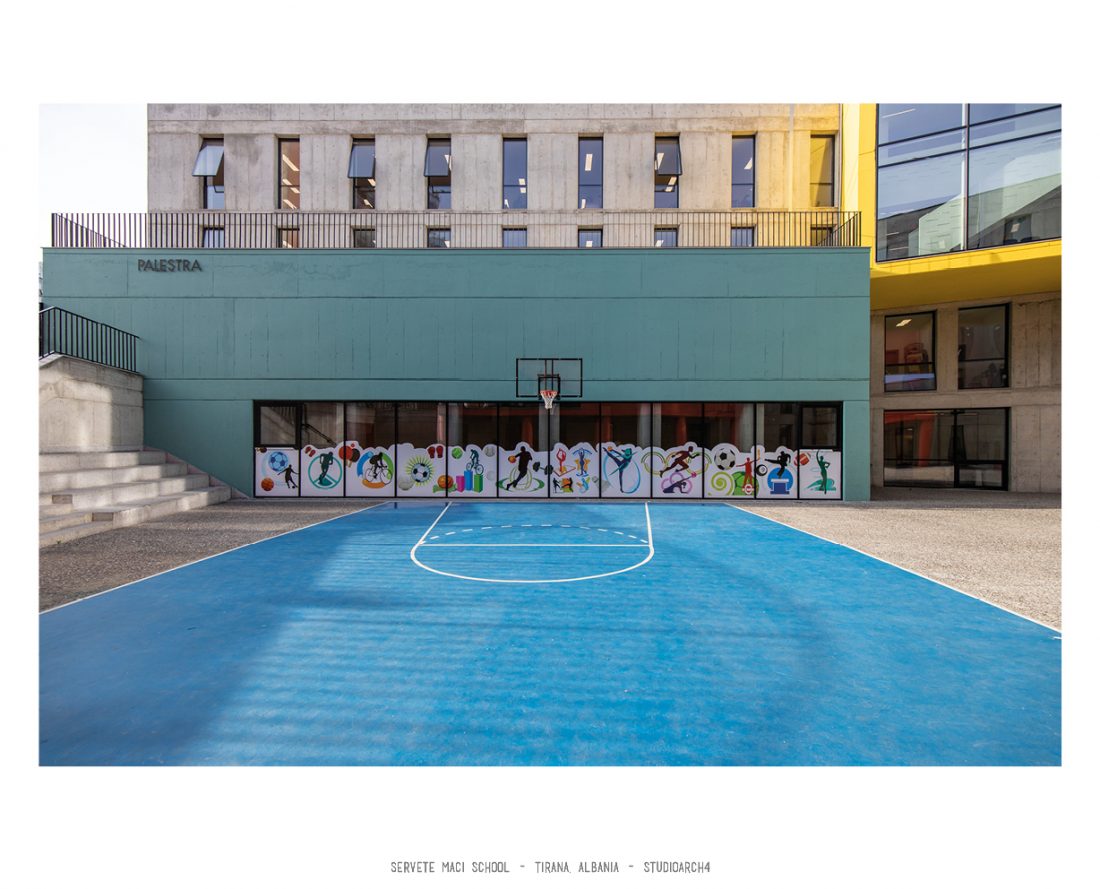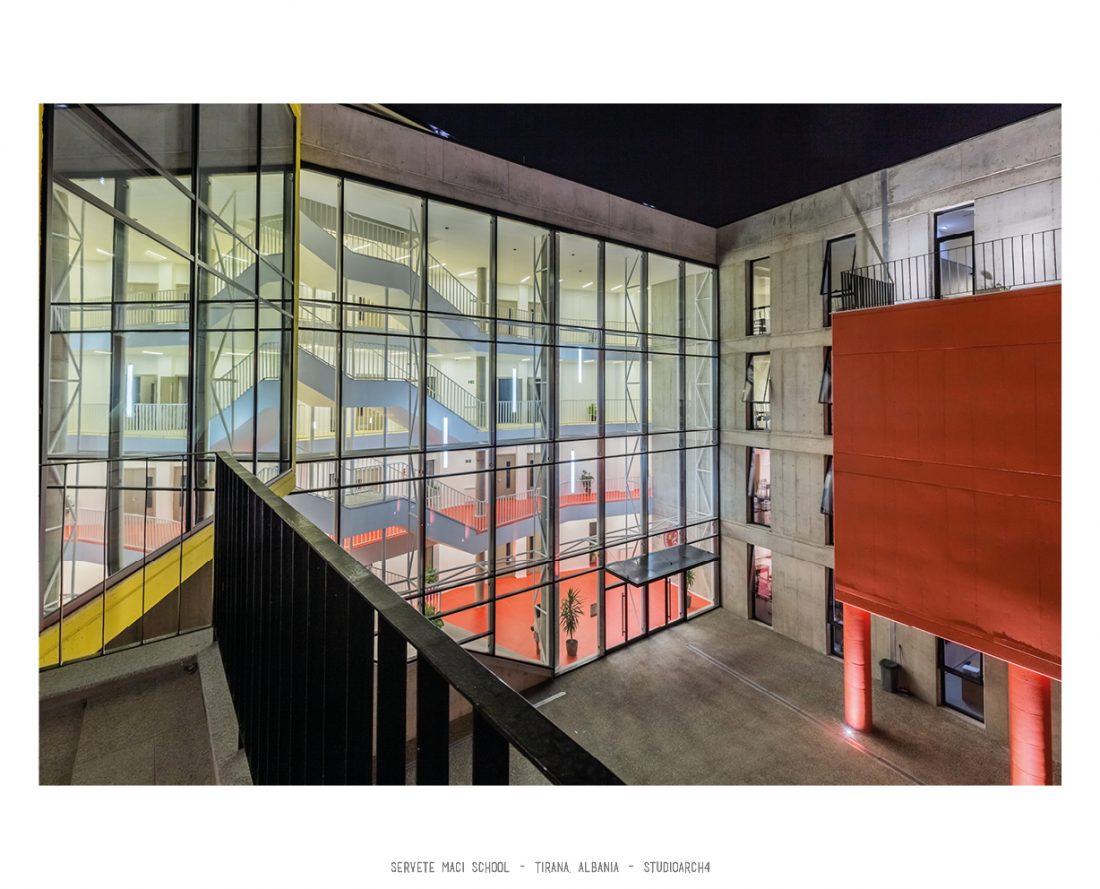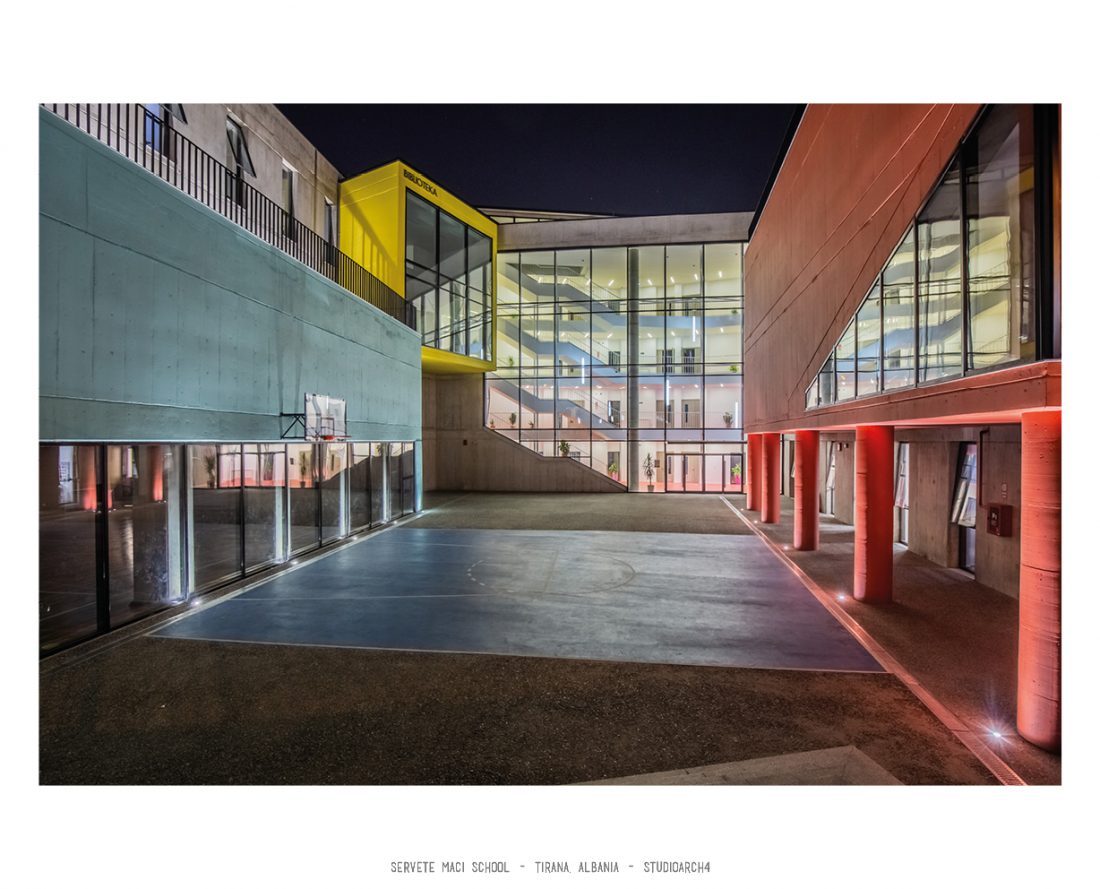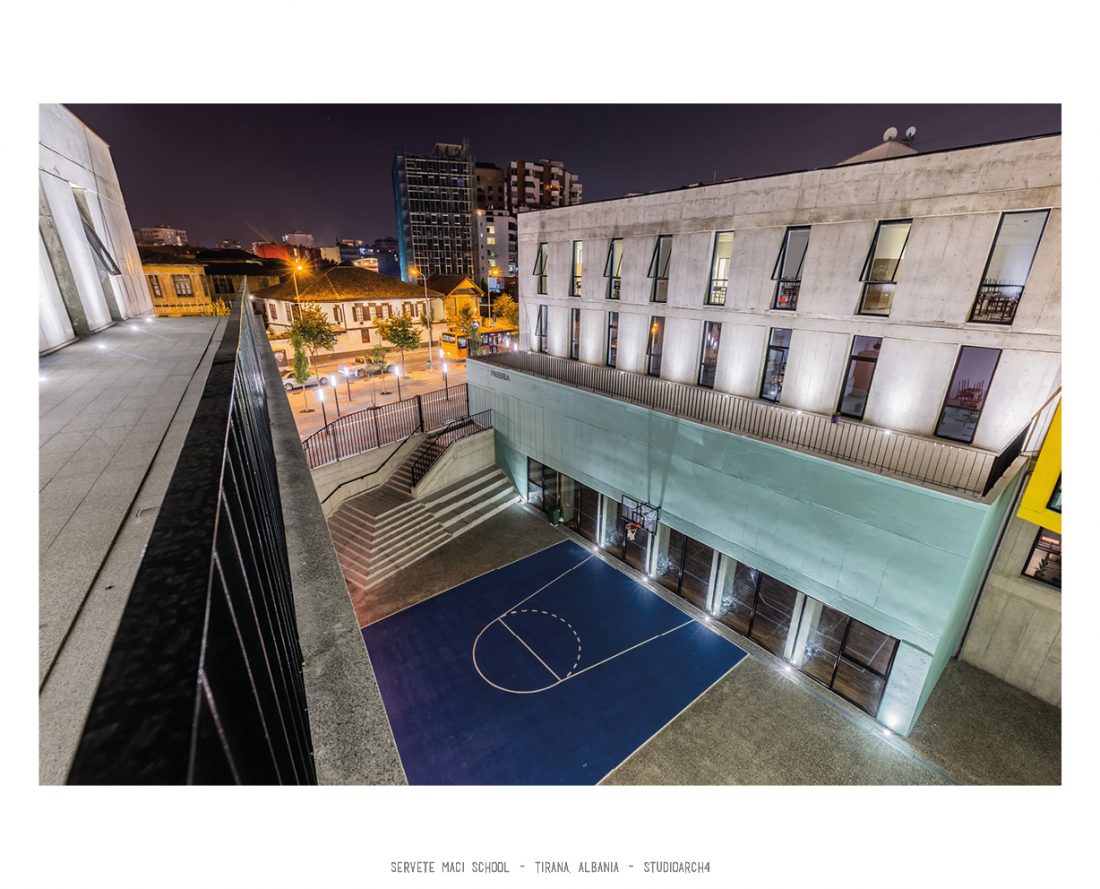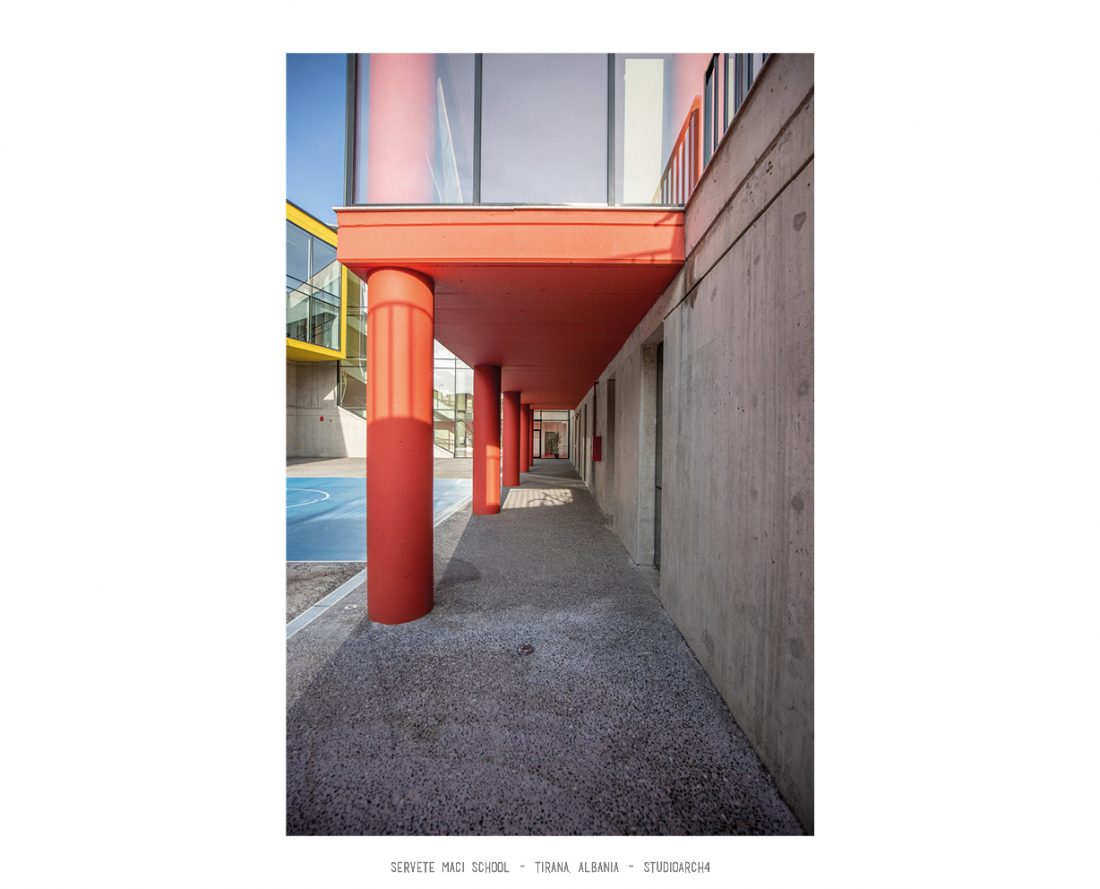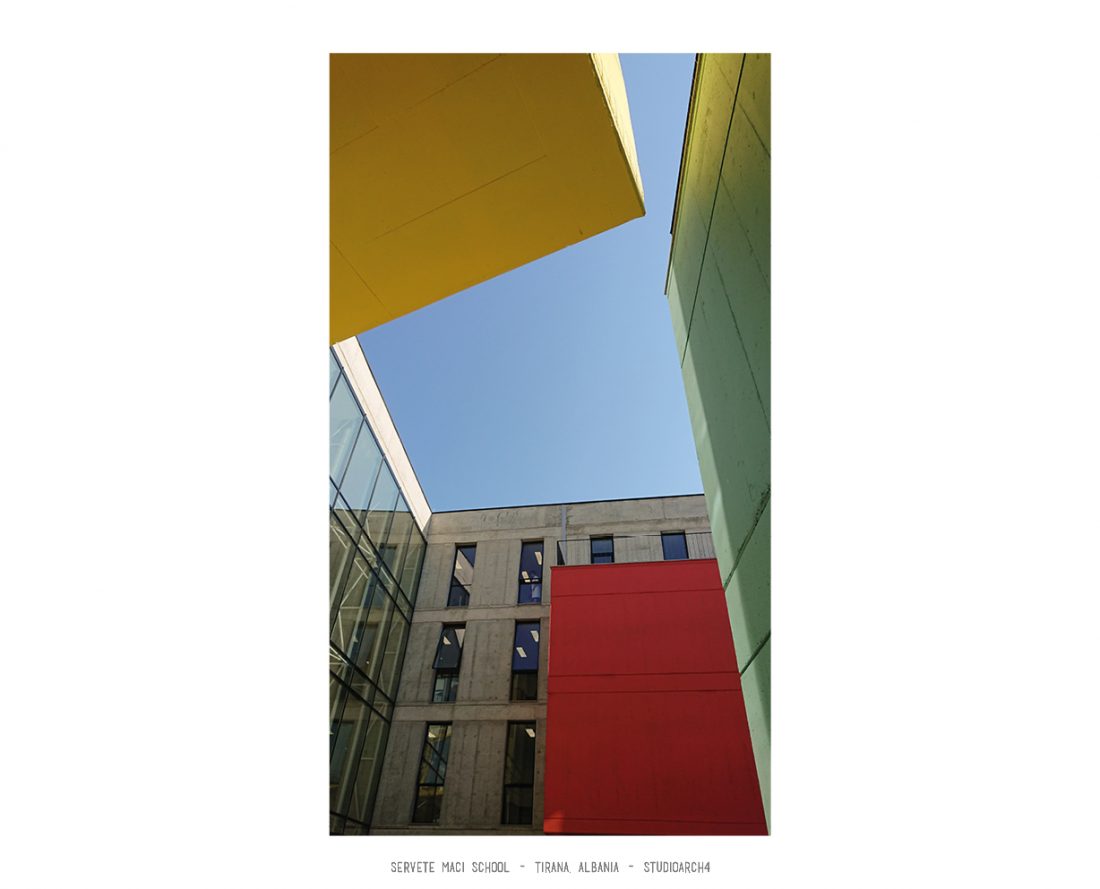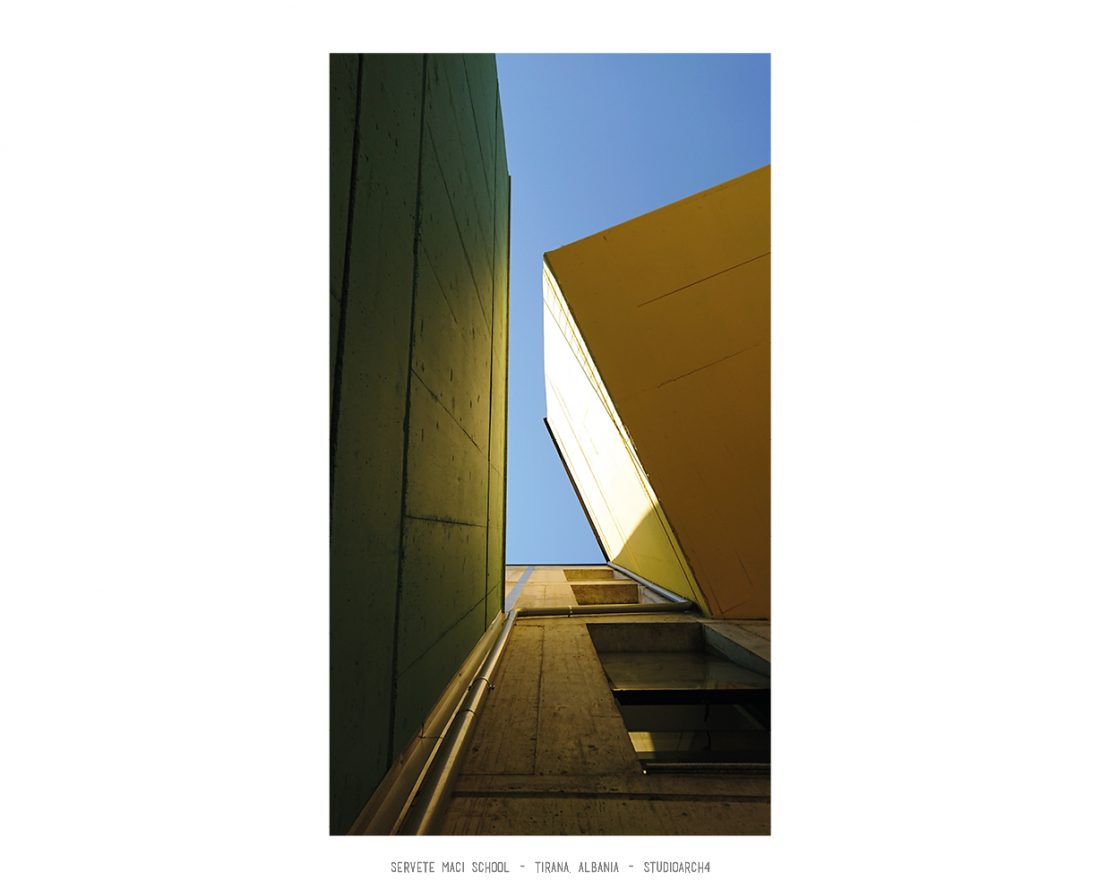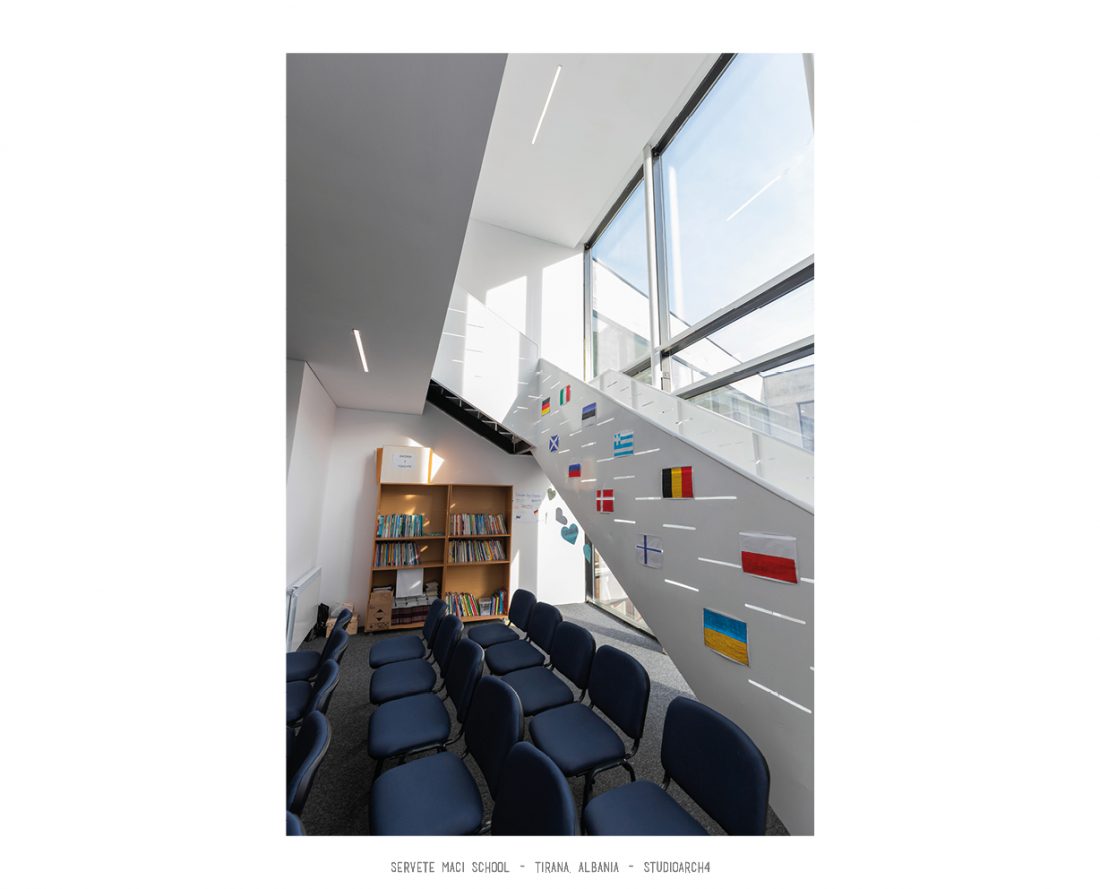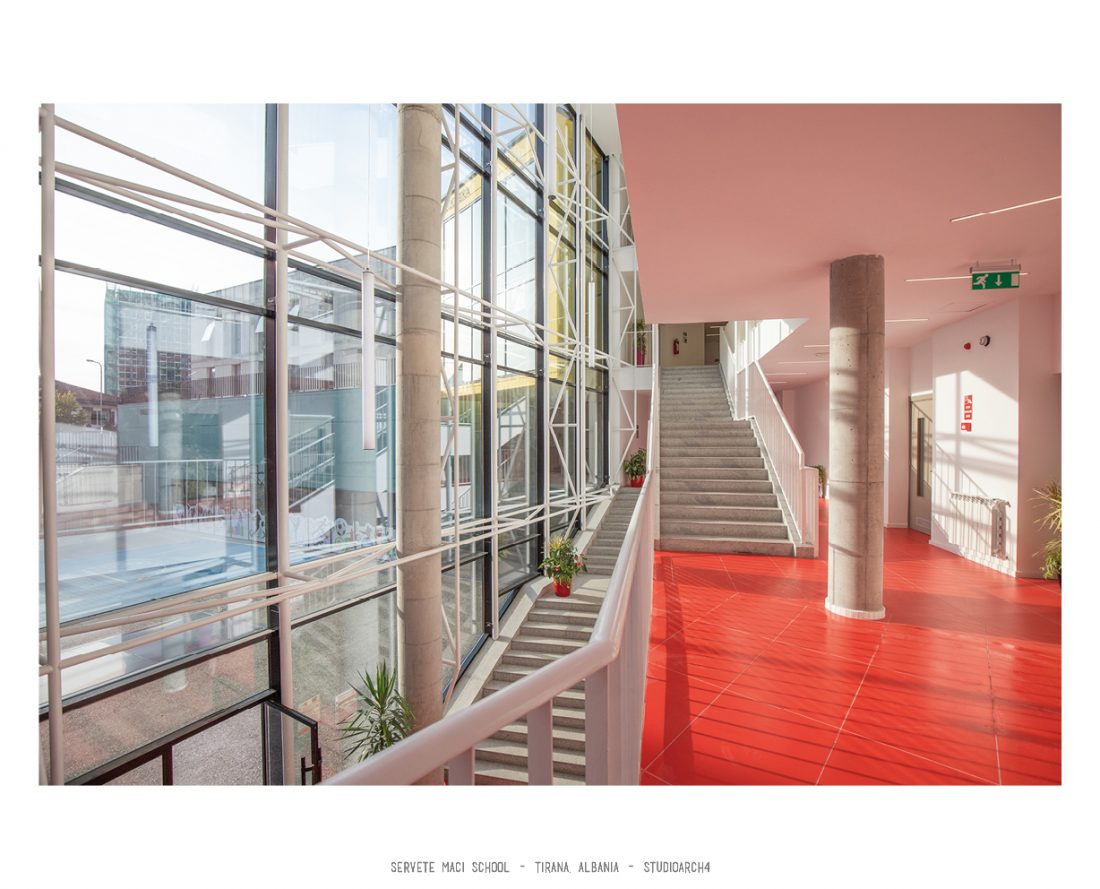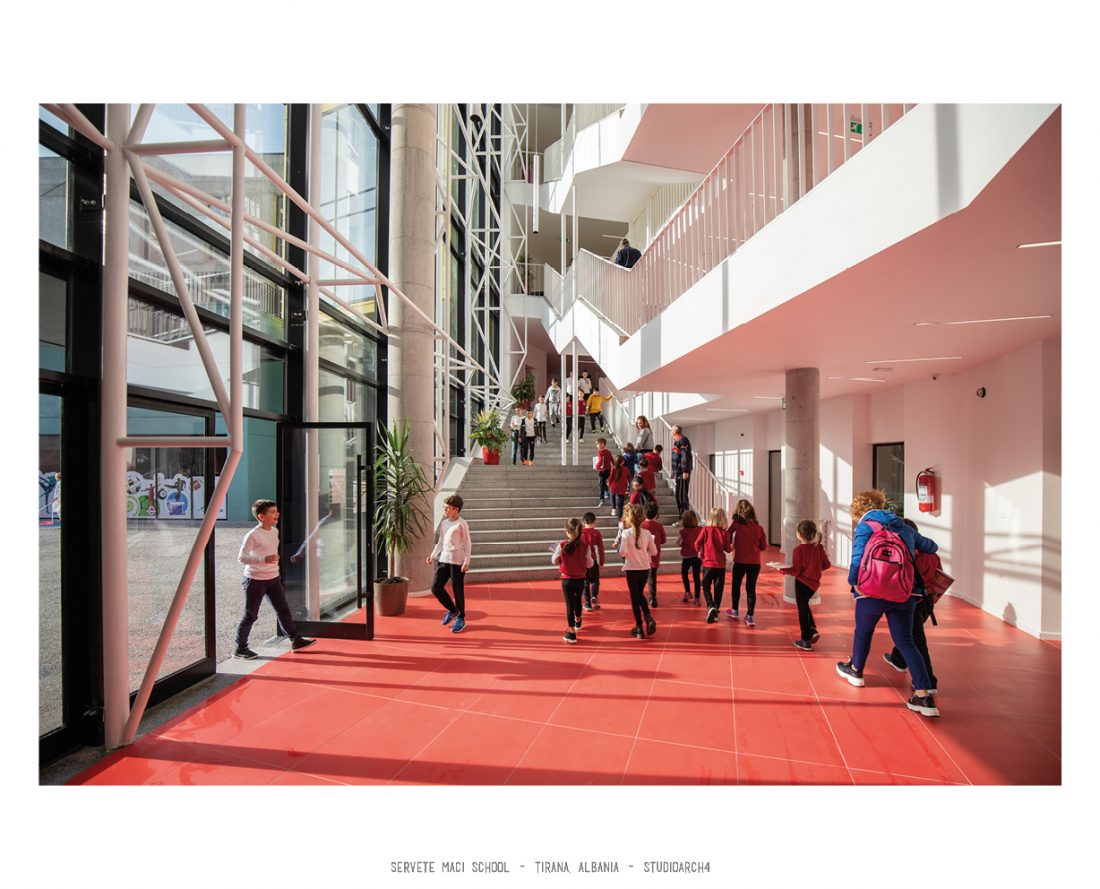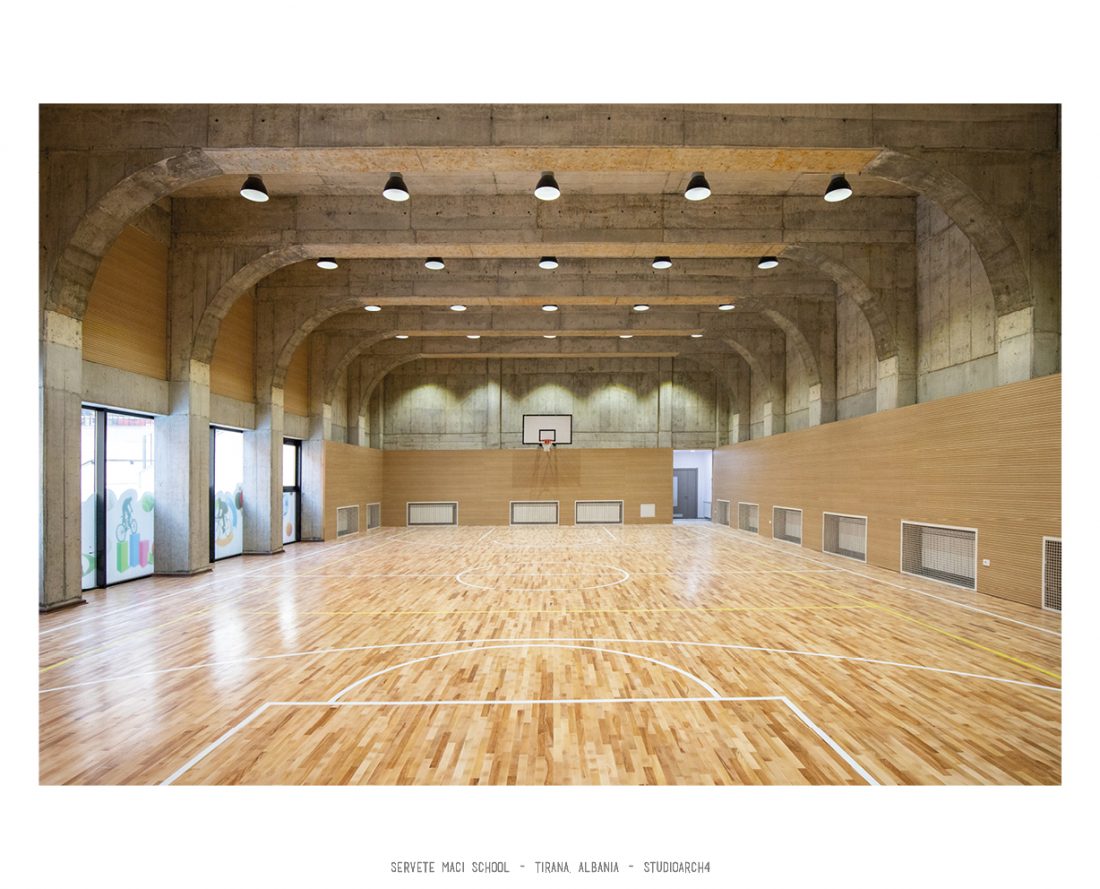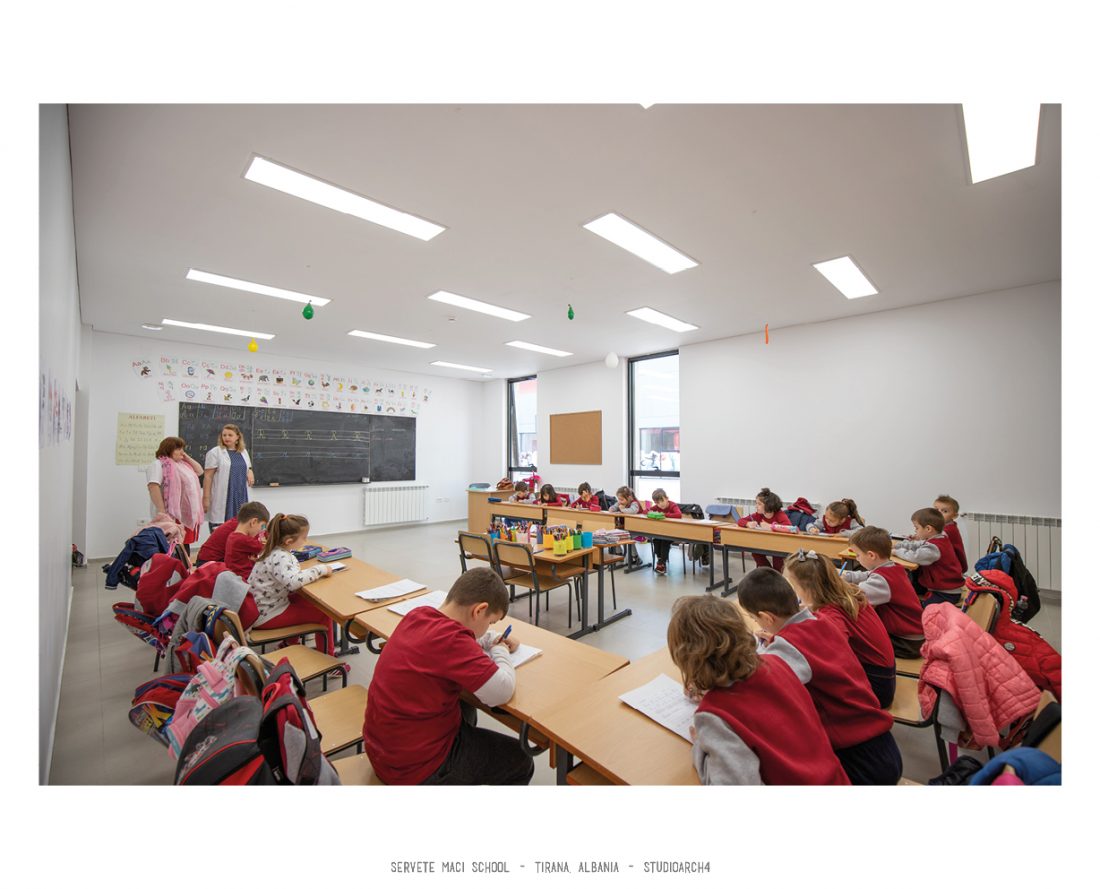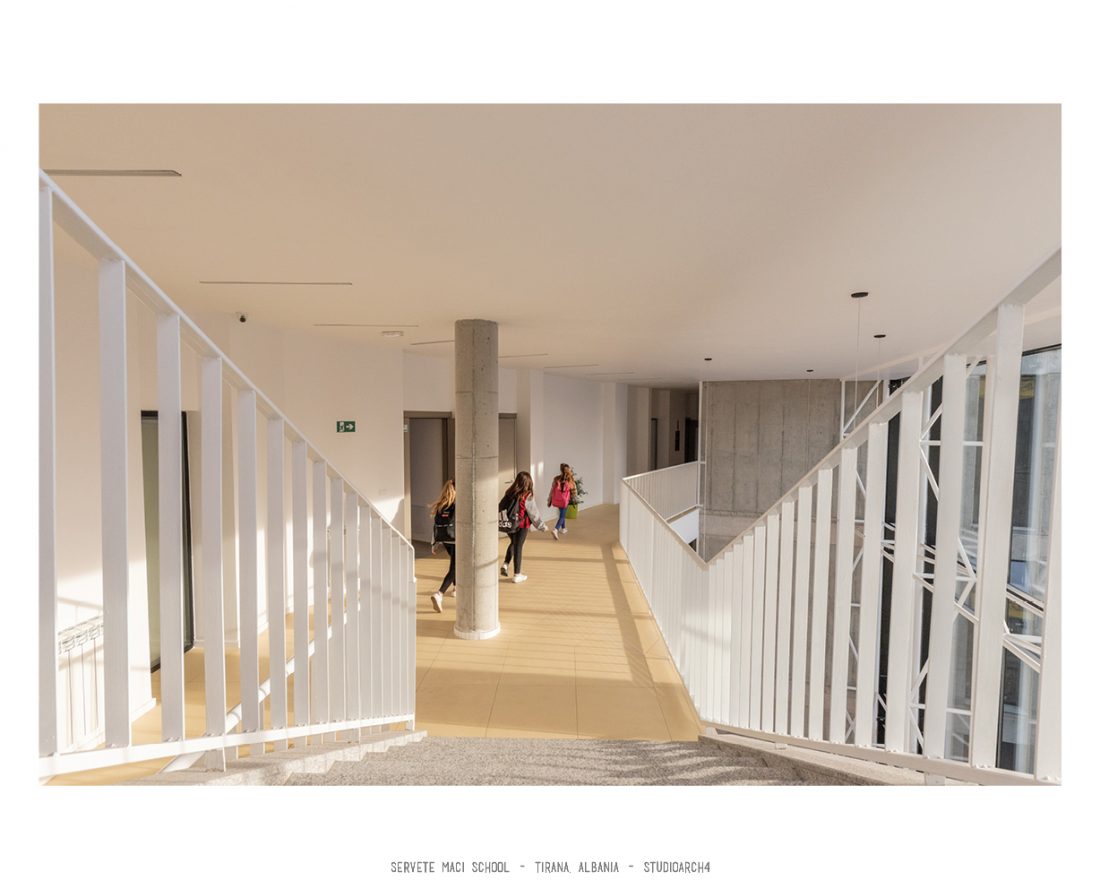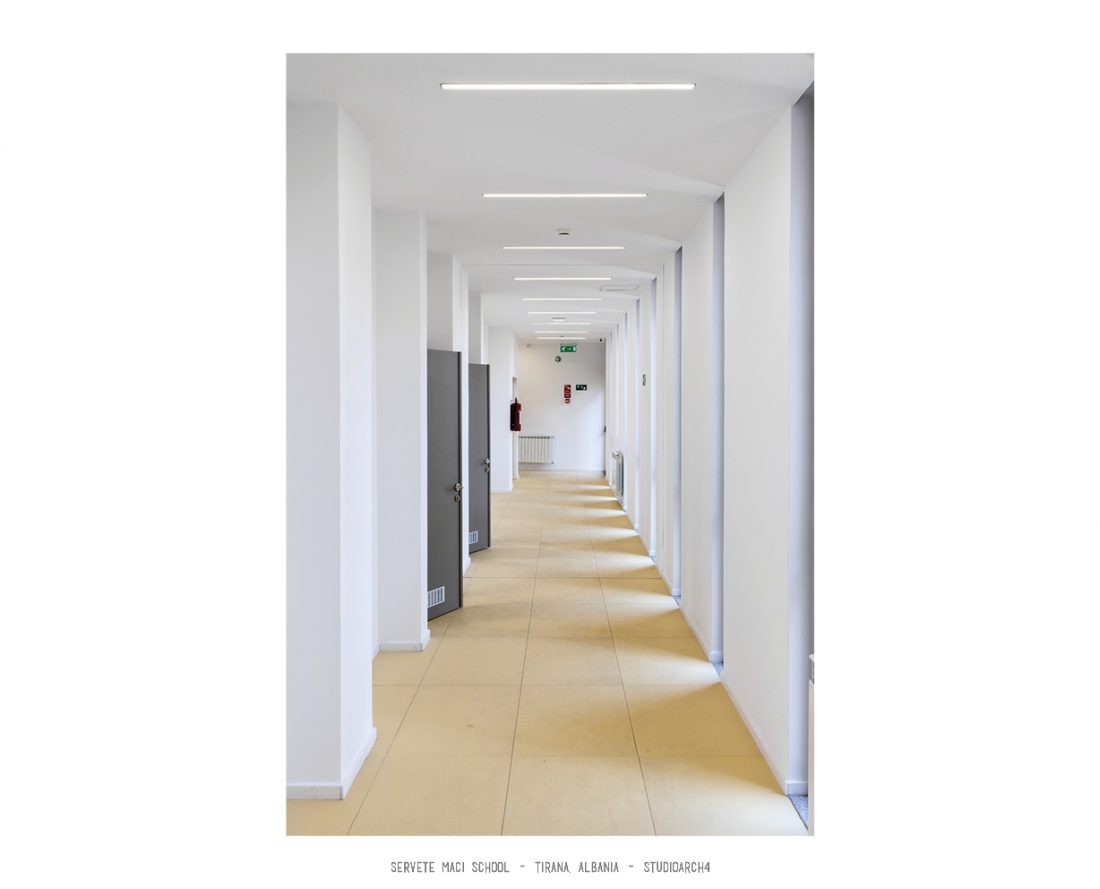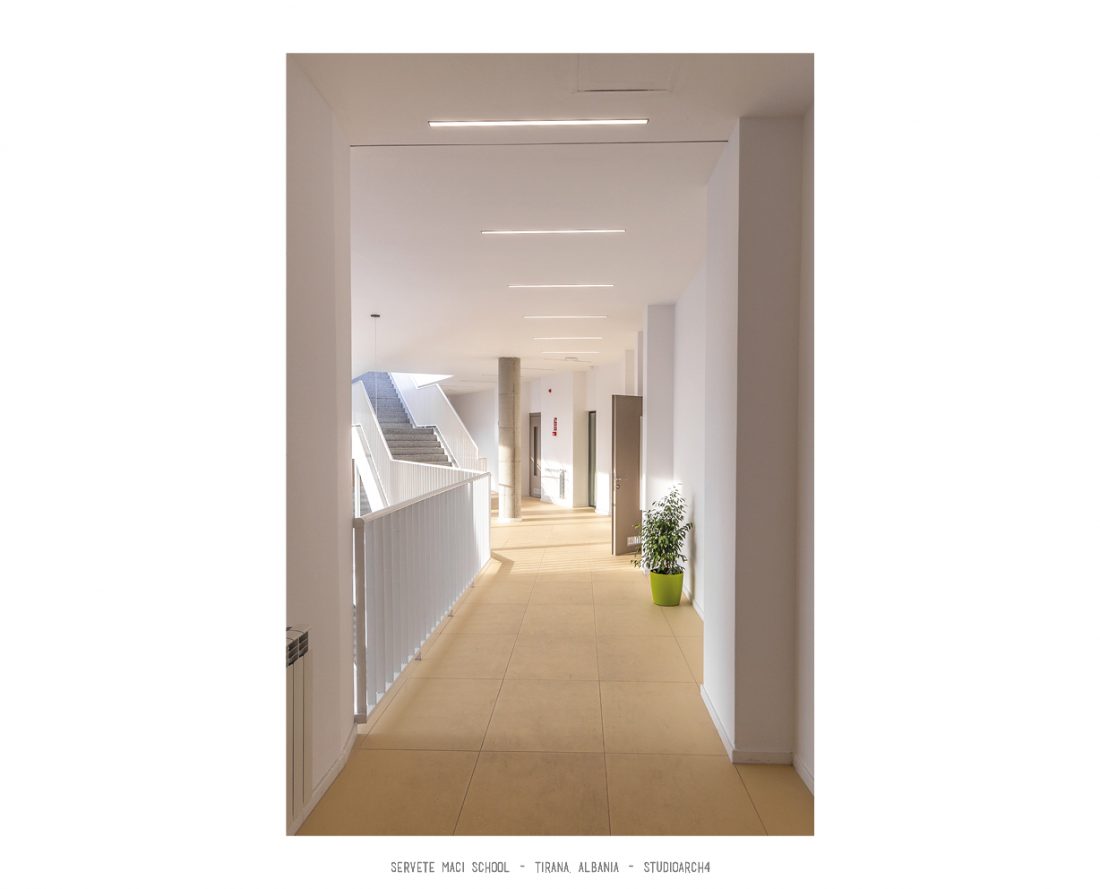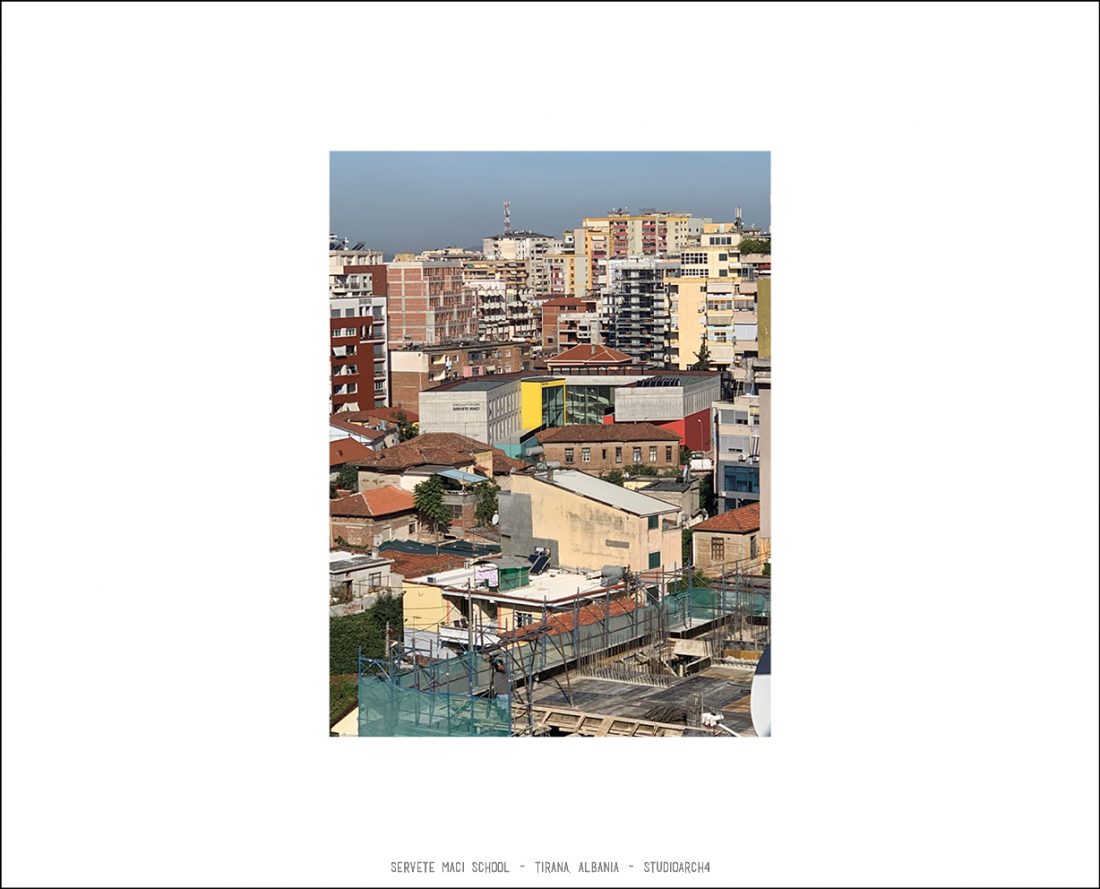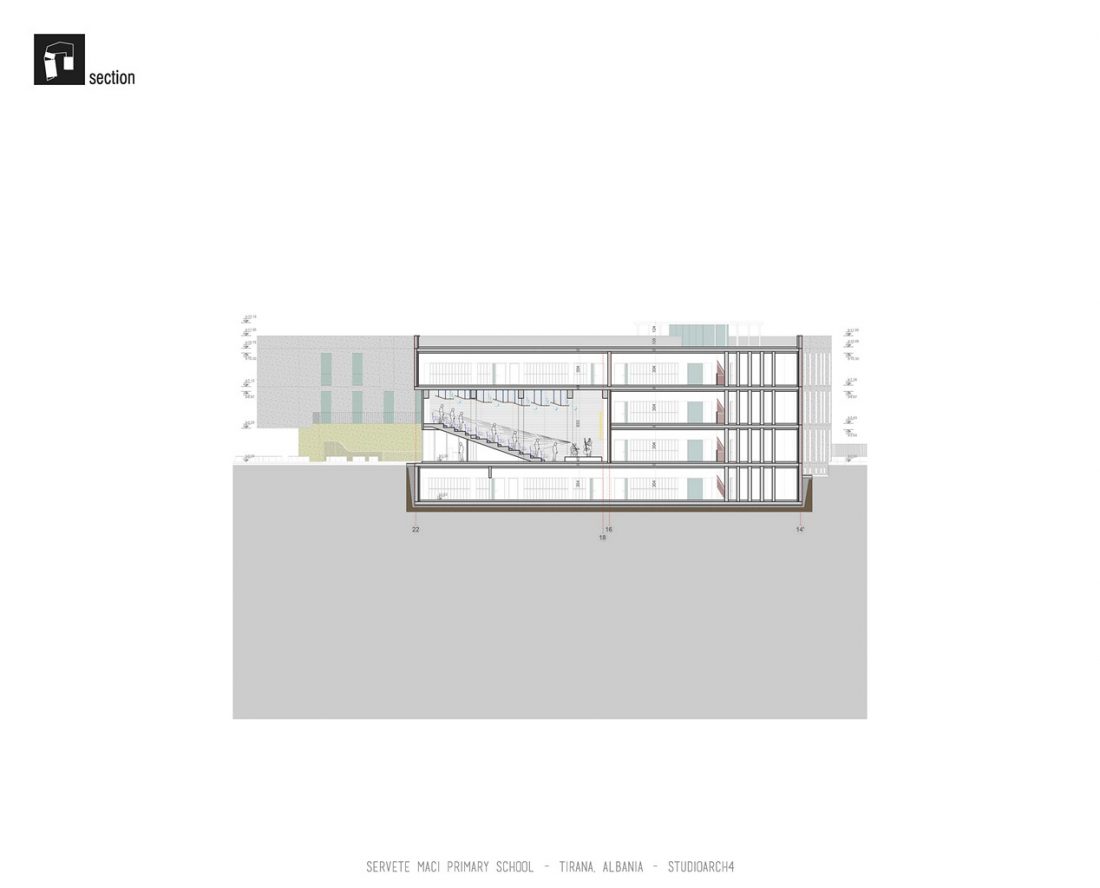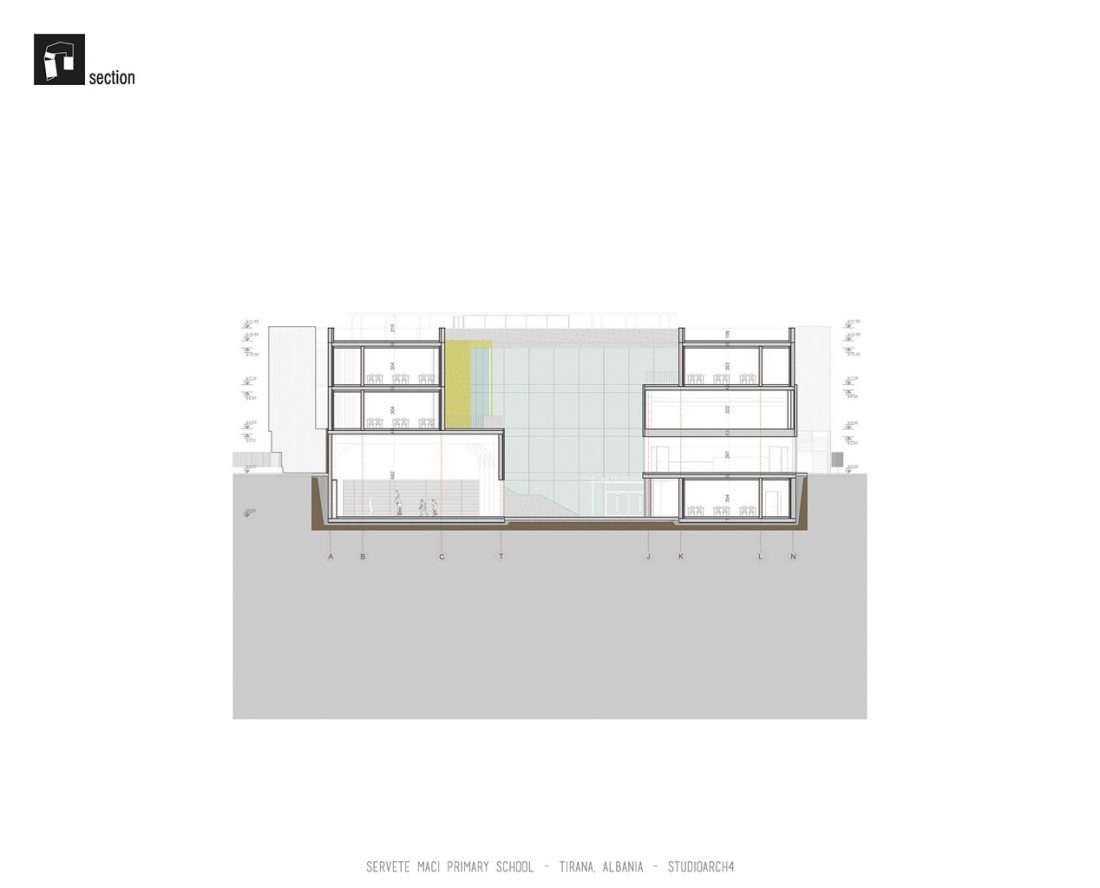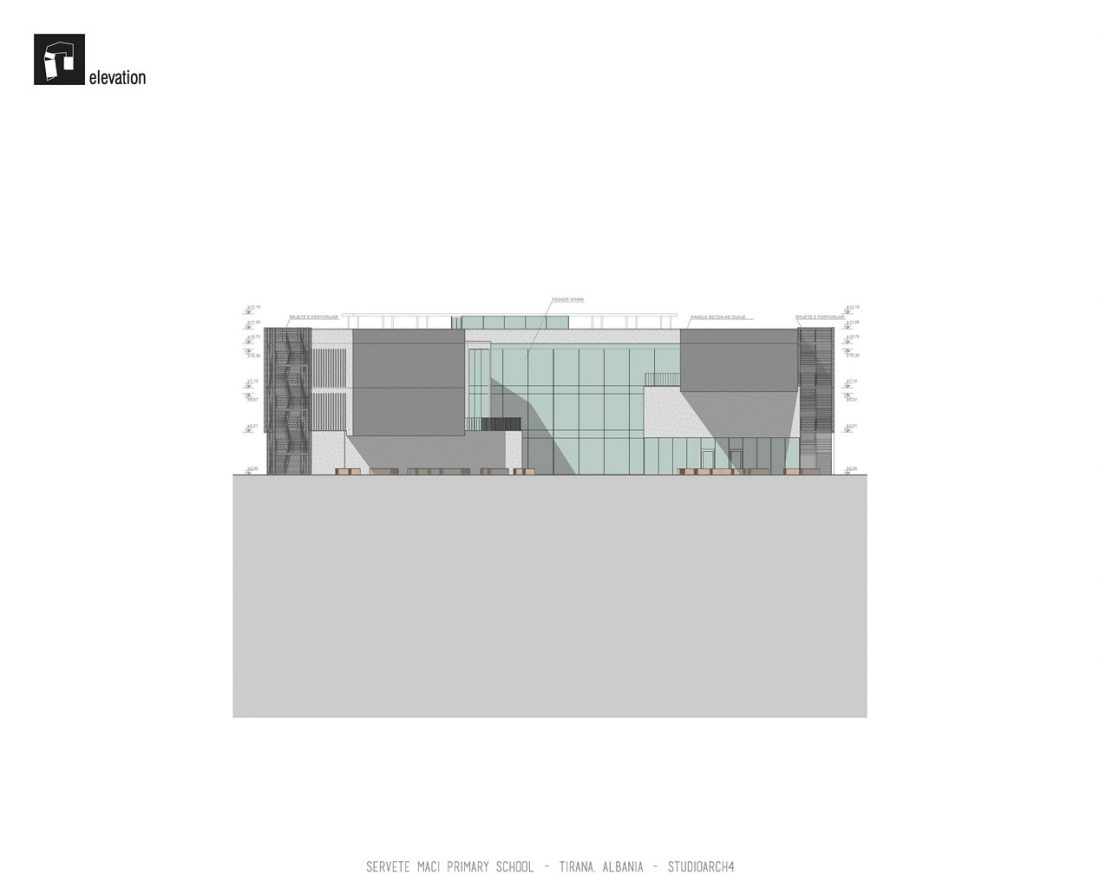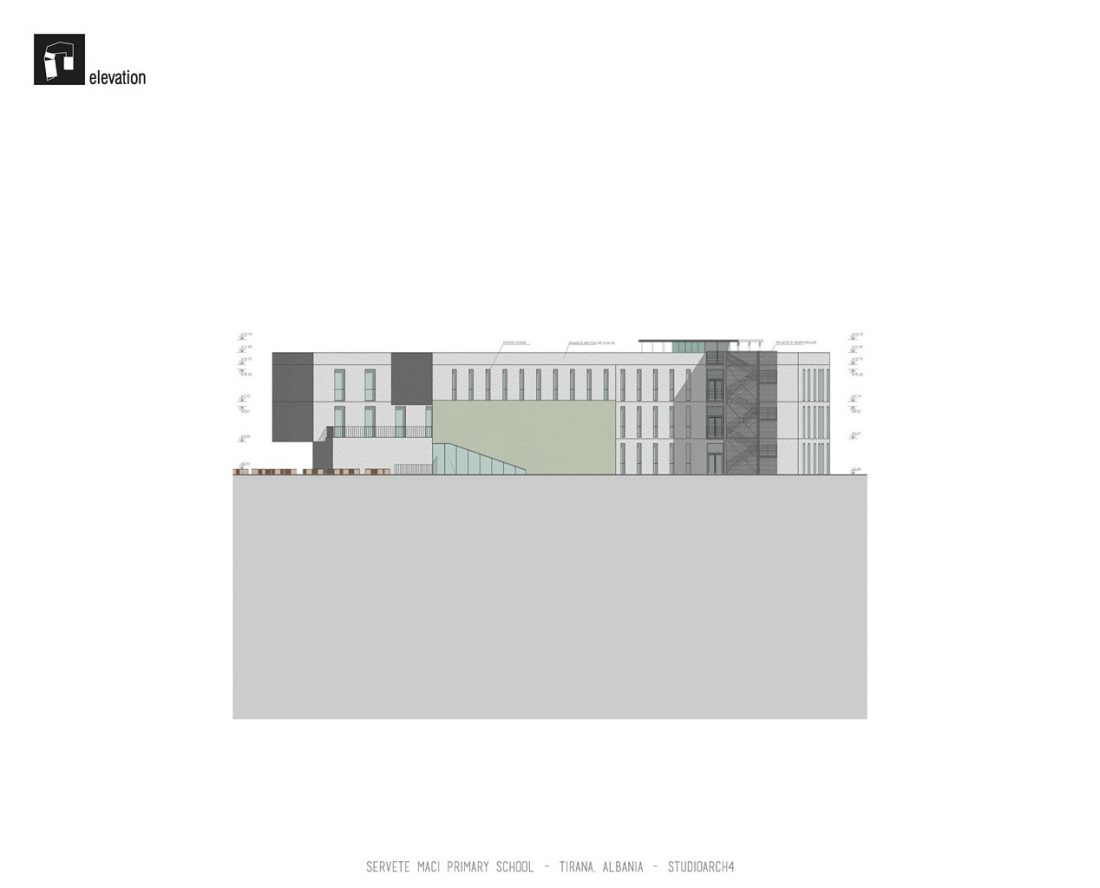‘Servete Maçi’ School
Servete Maci is a primary and secondary level school in Tirana where pupils are taught from grade 1 to 9.
The volumetric concept of the design is based on the internal courtyard as a main feature. The whole shape of the school revolves around this courtyard. As a results, classes are positioned facing the internal courtyard therefore creating a quitter teaching space. Halls are positioned in the outer perimeter of the building.
A well-functioning society is built upon a developed grid of public spaces and community centers. Unfortunately, developing countries like Albania show a shortage of inherited public spaces, which in turn makes it a challenge to allocate new ones within the existing infrastructure. A quick solution that comes to mind is expropriation. Developing countries however have a limited budget when it comes to new public projects such as community centers, social event venues, teaching lounges, gallery spaces, auditoriums and sports grounds. In most cases, existing funds can only cover construction costs, therefore expropriations has proven to be impossible to attain.
The development of existing schools can be seen as a sensible solution to this issue as well. Considering that schools have been sited strategically to serve the neighborhoods and communities throughout the history of civilization, it is easy to see how they can function as community centers as well. In addition, the existing state in which schools are functioning in Albania at the moment is not only poor and deteriorated but also under capacity. Therefore their reconstruction is a must.
What would happen than if schools and community centers merged into one?
The initiative “Schools as community centers and public spaces-24 hour open access” promotes the idea of an open access school dedicated both to the students and the rest of the community, where both processes complement and develop one another in symbioses, without disturbing the primary teaching purpose of the building. The idea of a 24-hour open access implies that the school will be open after teaching hours for the community to make use of all the necessary amenities.
This initiative has been taken into consideration during the design process of new schools. Architecture solutions provided recently are based on security measures for students during teaching hours, and accessibility measures for the rest of the community after hours.
With this initiative in mind, school grounds have been divided within 3 categories based on security and privacy:
- Spaces allocated for teaching functions, students and teaching staff
- Spaces serving both the school and the community
- Spaces dedicated to the community
Spaces allocated for teaching functions include classrooms, laboratories, staff rooms and other. These areas can only be used by the school’s staff and the students enrolled in the school. In this case, special attention should be placed on the entrance in order to make it safe and secure. All access points have to be controlled by staff.
Spaces serving both the school and the community include gymnasiums, auditoriums, concert halls, gallery spaces, meeting rooms, library or inner courtyards and other multipurpose classrooms. These areas are dedicated to the students and school’s staff during teaching hours but are accessible by the rest of the community after teaching hours. These spaces have been designed to allow easy access for the community without compromising transition spaces like corridors and classes. Restrooms however have to be accessible by all the community.The aim is for these spaces to function in conjunction with the school but also independently. Specifically the auditorium, gym, library and inner courtyards. Inner courtyards are more challenging regarding access control seeing as they are outdoor spaces. However access can be controlled through low movable gates.
Spaces dedicated to the community are those that can always be accessed by the community even during teaching hours. Usually this includes the space before the entrance to inner courtyards that can serve as a public square for children to play during teaching hours, a drop of and pick up spot for parents, a meeting spot or bus stop.
This initiative required not only a development in terms of design but also social projects regarding the management of facilities after hours. This could be done by hired staff or voluntary workers from the community itself. This initiative would encourage people from the community to develop and organize local activities.
What if this concept was to be implemented in all schools?
This initiative would promote the development of a large number of public spaces that the community could benefit from such as gyms, libraries, auditoriums and sports grounds distributed perfectly throughout the territory because schools are strategically sited for easy accessibility.
Implementing this framework in the reconstruction of existing schools will further enrich architecture and change schools for the better. In addition, communities can benefit from more social activities that address all ages. As such, giving schools a 24 hour open access can deeply benefit society a whole.

